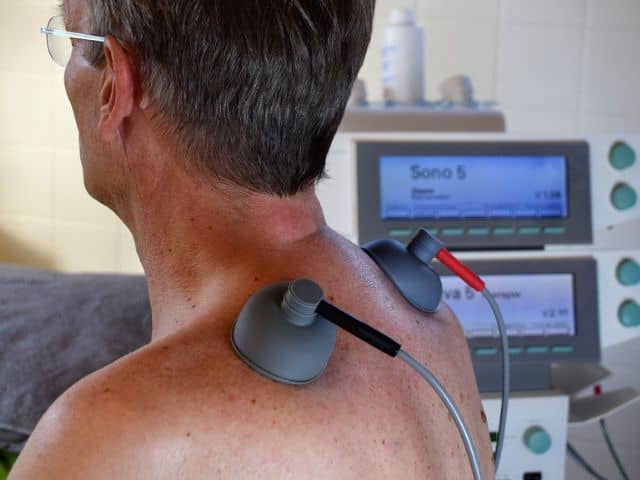
Whiplash is one of the most common and persistent injuries after a rear-end collision. While it may sound like a minor inconvenience, this neck strain can quickly become a major pain in the…well, neck. What starts as stiffness and soreness can spiral into chronic pain, limited mobility, and a litany of other debilitating symptoms.
But how long does whiplash actually last after a car accident? Is it a temporary nuisance or could it derail your life for months or even years? The truth is, the duration of whiplash varies dramatically from person to person. Factors like the severity of the impact, your personal pain tolerance, and whether you receive proper treatment all play a major role.
This guide covers the typical whiplash recovery timeline, as well as signs that your case may be more severe and long-lasting.
If you’re dealing with whiplash, one of the first questions on your mind is likely, “How long will this last?” The truth is, there’s no one-size-fits-all answer. The recovery timeline for whiplash can vary significantly from person to person, depending on factors like the severity of the injury, your age, and whether you had any pre-existing conditions.
Studies show that most people, however, will experience symptoms for a few days to a few weeks. This initial period is often the most acute, with intense neck pain, stiffness, and headaches being common complaints. For some, the recovery process may take a bit longer, stretching into months. And in rare cases, whiplash can lead to chronic pain and disability that lasts for years.
Whiplash is a complex injury that can manifest in a variety of ways. To truly grasp the recovery process, it’s essential to understand the different grades of symptoms and recovery phases that people typically experience.
In the immediate aftermath of a whiplash injury, you may experience a range of symptoms depending on the severity of your injury.
During this acute phase, it’s crucial to seek medical attention, even if your symptoms seem mild. Your doctor can properly diagnose your injury, rule out any more serious issues, and recommend appropriate self-care and treatment options. This may include over-the-counter pain medication, applying ice or heat, and gentle stretching exercises.
If you experience any red flags, such as severe or worsening pain, numbness or tingling in your arms or legs, or loss of bladder or bowel control, seek immediate medical attention. These could be signs of a more serious injury that requires prompt treatment.
As you progress through the recovery process, you may enter the sub-acute phase, which can last anywhere from a few weeks to several months. During this time, your initial symptoms may persist or evolve.
This phase is often focused on rehabilitation and actively managing your symptoms. Your healthcare team may recommend physical therapy, chiropractic care, or other therapies to help restore your mobility, strength, and function. It’s also essential to track your progress and adjust your treatment plan as needed.
In some cases, whiplash can progress into a chronic condition, with symptoms persisting for more than six months. This can be particularly challenging, as the ongoing pain and limitations can significantly impact your quality of life.
Risk factors for developing chronic whiplash include:
If you find yourself in this situation, it’s crucial to take a multidisciplinary approach to your treatment. This may involve working with a team of healthcare professionals, including physicians, physical therapists, psychologists, and pain management specialists. Together, they can develop a comprehensive plan to help manage your persistent symptoms and improve your overall function and well-being.
While most people recover from whiplash within a few weeks or months, there are certain factors that can potentially prolong the recovery process. Being aware of these can help you better manage your expectations and take proactive steps to support your healing.
Early and accurate diagnosis is key to receiving proper treatment throughout recovery. As you work through your recovery, it’s important to track your symptoms and improvements over time. Your healthcare team may use tools like pain scales, range of motion measurements, and functional assessments to monitor your progress. This data can help guide your treatment plan and ensure you’re on the right path to recovery.
Maximum Medical Improvement, or MMI, is a crucial milestone in any injury case. MMI is the point at which your condition cannot be further improved through additional treatment. Once you reach MMI, your doctor can assess your level of permanent impairment and disabilities.
Reaching MMI doesn’t mean you’ve fully recovered, but rather that your condition has stabilized and further treatment won’t lead to significant improvement. This determination impacts your injury claim in a few key ways:
Your MMI designation will be based on your doctor’s expert opinion, typically backed up by your latest tests and a physical examination. Having an experienced car accident lawyer ensure your MMI status and impairment ratings are properly evaluated, which is critical for maximizing your settlement value.
If you or a loved one have been injured in a car accident in the Memphis area, you need an elite legal advocate on your side. At Pickford Law Firm, our accomplished car accident attorneys have years of combined experience winning maximum compensation for clients.
We know the tactics insurance companies use to try to minimize settlements, and we don’t back down. Our skilled negotiators rigorously investigate every claim to build overwhelming evidence that protects your rights. If they refuse to pay what you deserve, we’re fully prepared to take your case to trial.
You’ve already suffered enough from someone else’s negligence. Let Pickford Law shoulder the legal burden so you can focus on recovering. Best of all, it costs you nothing upfront to have us evaluate and take on your case. Don’t wait – contact us today for a free, no-obligation consultation about how we can maximize your car accident settlement.